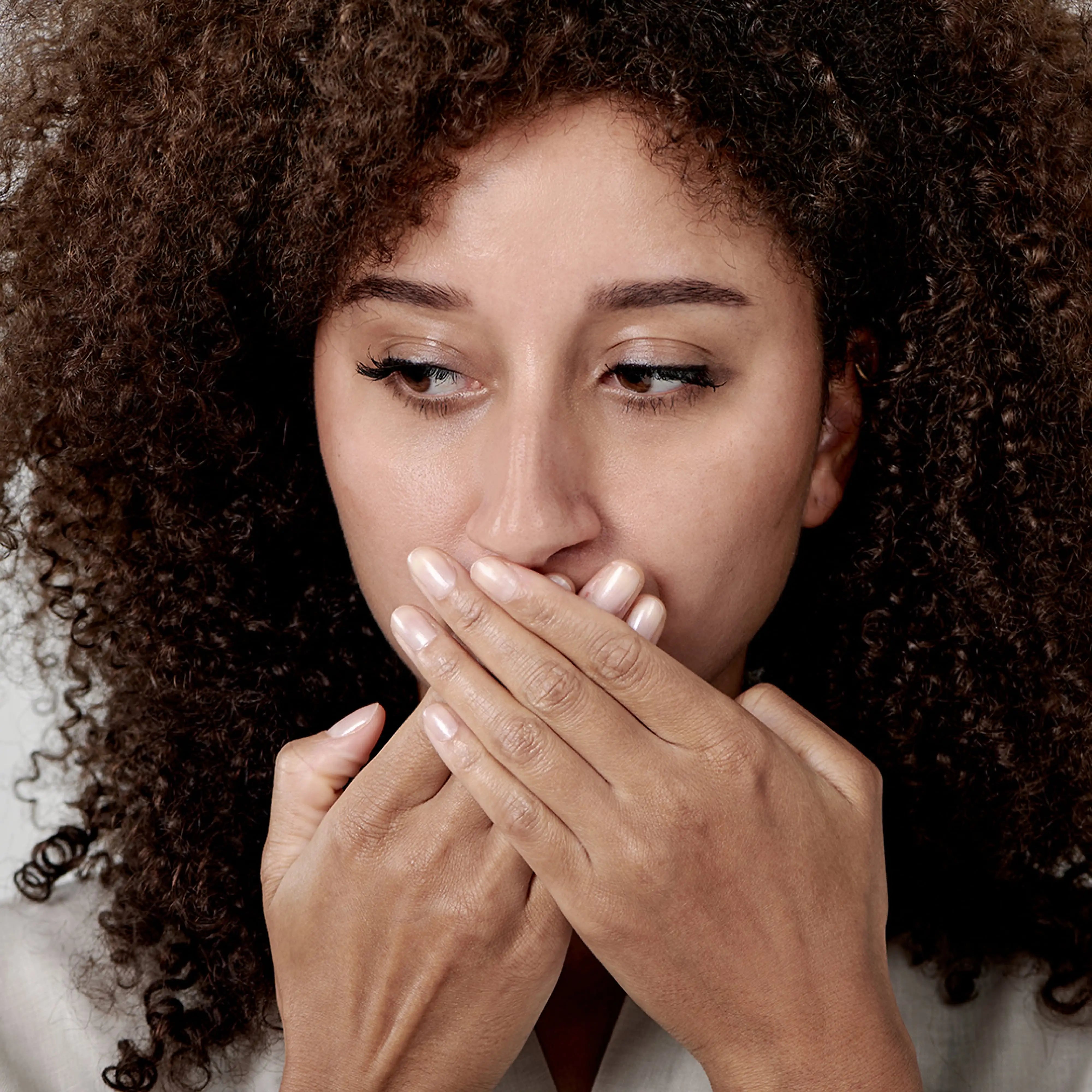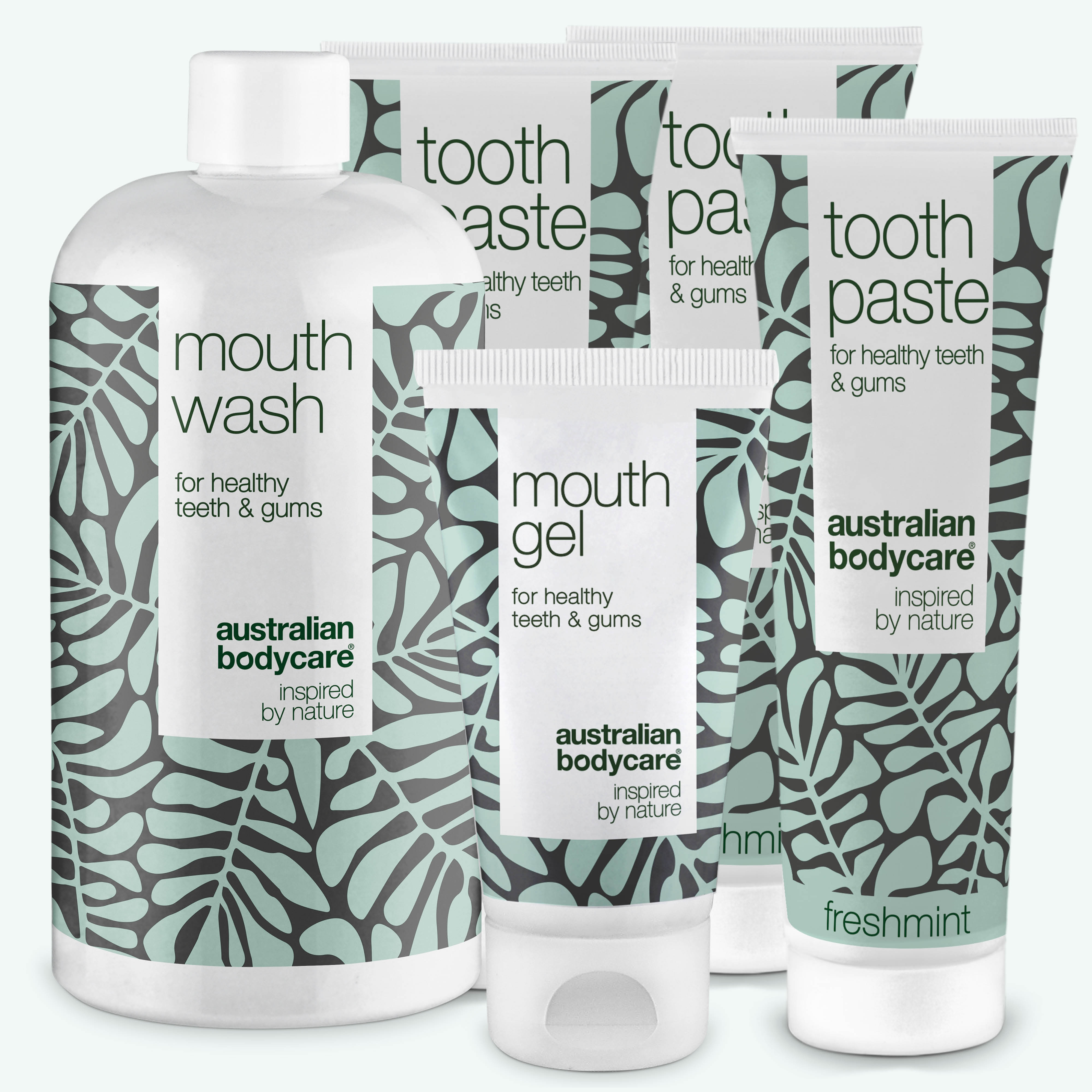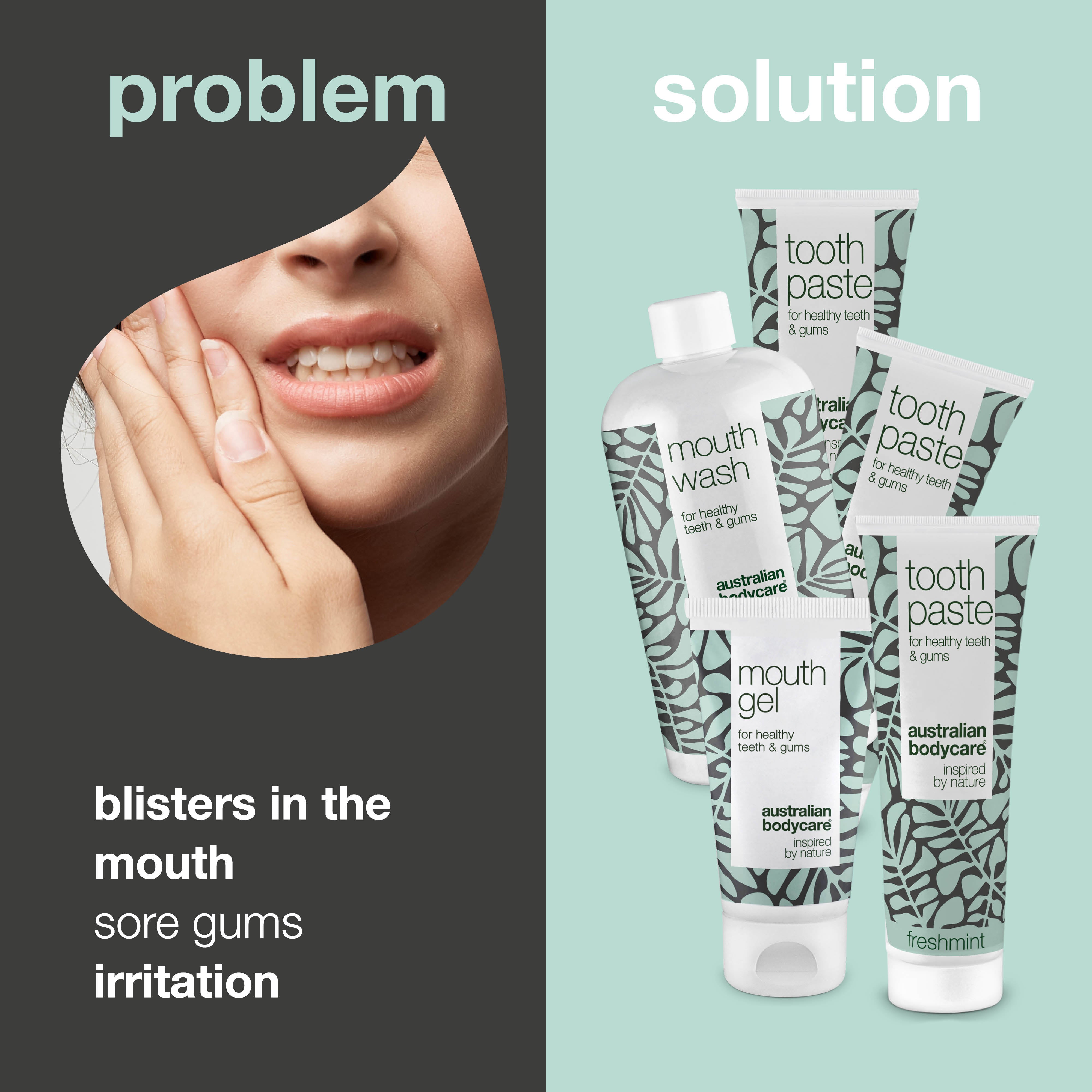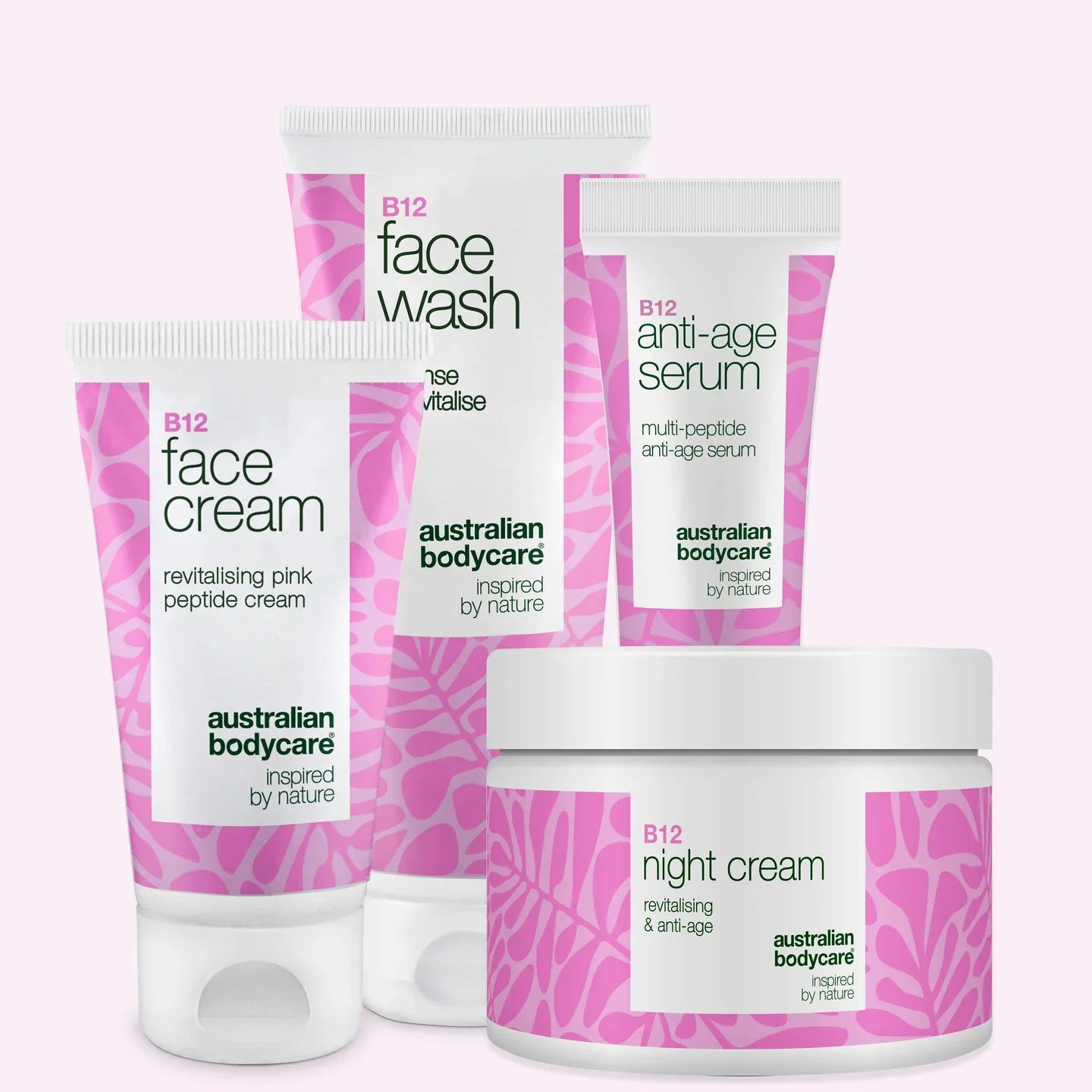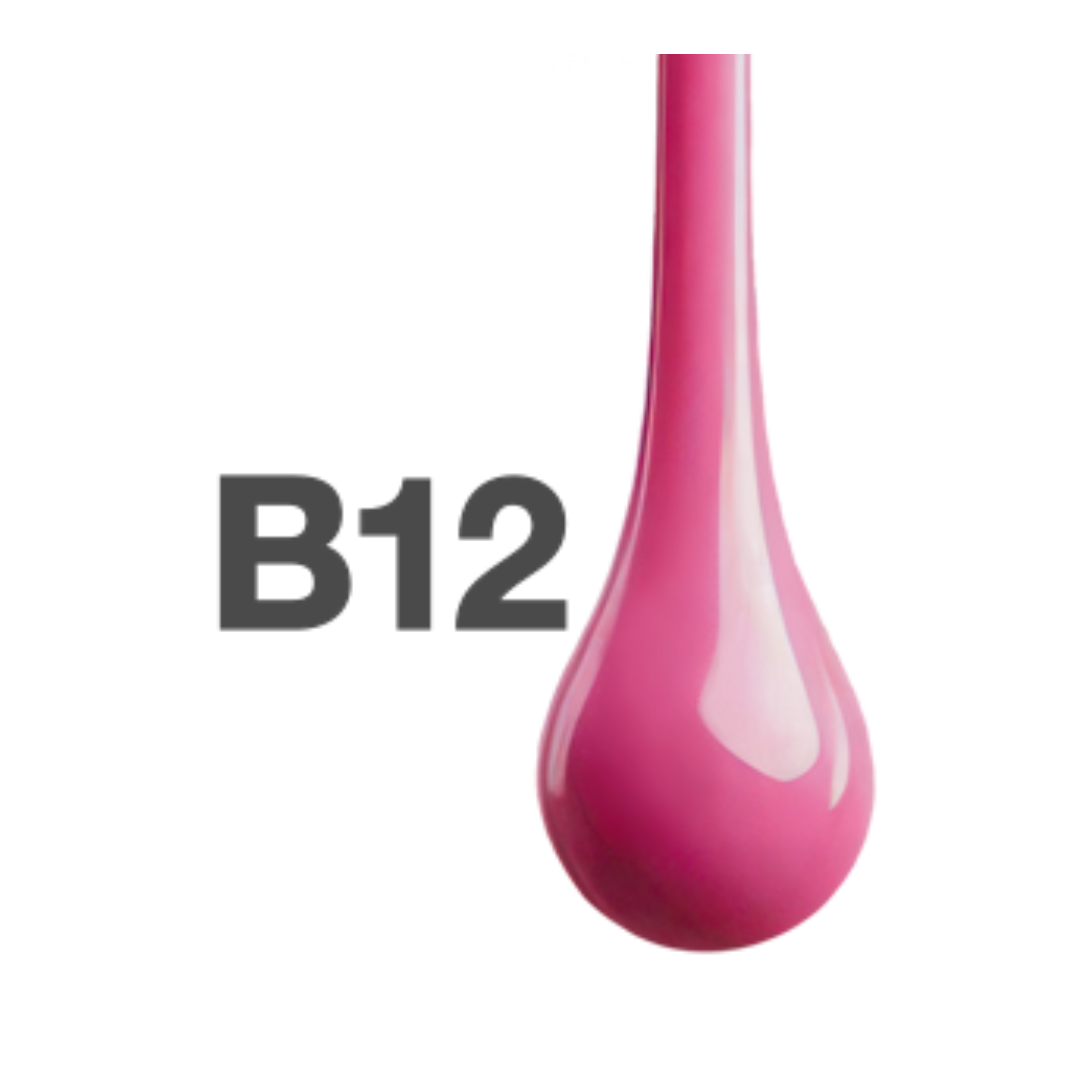Blisters on Tongue: Causes, Symptoms, and Treatment Tips
Blisters on the tongue can arise for various reasons. These small, sensitive areas in the mouth are not only uncomfortable; they are also linked to factors such as stress, nutritional deficiencies, allergies, and hygiene habits.
Blisters can appear as oval sores, clusters of ulcers, or larger sores, and their manifestation can depend on genetics and overall health.
Read on for more in-depth information.
Table of contents
What Are Blisters on the Tongue?
Blisters on the tongue appear as small sores or ulcers that develop on the tongue. These blisters can cause discomfort and pain, making it difficult to eat and speak normally.
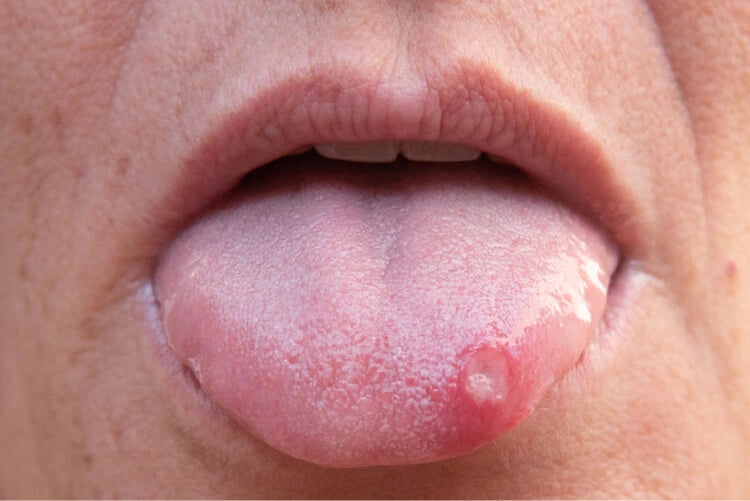
Definition and Symptoms
Blisters on the tongue present as small, painful swellings. They can be white or red and often appear in clusters. Symptoms of these annoying little lesions include pain, especially when eating or speaking.
Many people also experience a burning sensation or discomfort in the mouth.
The tongue can feel tender and may become slightly swollen. Some people have only a few blisters at a time, while others may have many, making daily activities like eating and speaking challenging.
These symptoms can be signs of stress, vitamin deficiency, allergies, or other environmental factors affecting oral health.
Causes of Blisters on the Tongue
Stress and lack of essential vitamins often lead to the development of blisters on the tongue. Hormonal changes, such as those occurring during pregnancy, menstrual cycles, or menopause, also affect oral health.
These conditions make the tongue more susceptible to blisters.
Spicy or highly acidic foods and allergic reactions to certain foods also trigger the formation of small, painful blisters. A weakened immune system, autoimmune diseases like celiac disease, and viral infections such as chickenpox or hand, foot, and mouth disease can also be the cause.
Good oral hygiene is essential to minimize the risk of these painful blisters.
Prevention and Natural Treatments
Preventing blisters on the tongue is crucial to avoid discomfort and pain. Oral hygiene plays a vital role in preventing blisters on the tongue. Natural remedies such as rinsing the mouth with salt water can help reduce inflammation and speed up the healing process.
Understanding Trigger Factors
Blisters on the tongue can be caused by many different things. It is important to know the factors that can trigger them to better prevent them.
- Stress plays a significant role in the development of blisters. When the body is stressed, the immune system is weakened, making it easier for blisters to appear.
- Lack of vitamins such as B12 and iron can also lead to blisters. A healthy and varied diet helps prevent them.
- Allergic reactions to certain foods or toothpaste containing sodium lauryl sulfate can irritate the mucous membranes and cause blisters.
- Hormonal changes, especially in women during menstruation or pregnancy, change the body's balance and can trigger blisters.
- Injuries to the mucous membranes caused by accidental biting or hard brushing create small wounds where blisters can easily develop.
- Viral infections such as cold sores can also be a frequent cause of blisters on the tongue. These types of infections attack the mucous membranes directly.
Avoiding spicy foods and acidic beverages reduces the risk of mouth irritation. Alcohol consumption should also be limited to avoid further irritation of the oral cavity. Understanding these trigger factors allows you to better protect your oral health and potentially reduce the number of blisters you experience.
Oral Hygiene and Preventive Measures
Oral hygiene plays a vital role in preventing blisters on the tongue. Gentle brushing and using toothpaste without foaming agents can help prevent blisters. Avoiding spicy or acidic foods and beverages can also help prevent the development of blisters. Regular use of bactericidal chlorhexidine can be an effective preventive measure against blisters. Stress should be avoided as it can contribute to the development of blisters on the tongue.
- Use soft toothbrushes for gentle cleaning
- Use alcohol-free mouthwash
- Proper nutrition with adequate intake of vitamins and minerals
- Frequent replacement of toothbrush heads and maintaining a clean toothbrush
- Reduced intake of sugary foods and beverages, including sodas and candy
Natural Remedies
Blisters on the tongue can be treated using natural methods, including avoiding spicy or acidic foods and using pain-relieving gel. Gentle brushing and moderate intake of spicy or acidic foods can also help prevent blisters. Other natural remedies include:
1. Avoiding foaming agents in toothpaste
2. Reducing intake of acidic beverages
3. Applying ice or cold compresses to relieve pain
4. Rinsing with salt water to reduce inflammation
5. Considering dietary supplements such as vitamin B12 or iron for overall oral health
It is important to note that the effectiveness of these natural remedies may vary from person to person, and it is always recommended to seek advice from a healthcare professional if symptoms persist or worsen.
Medical Treatments
When the tongue develops blisters, medical treatments can be an effective solution. Mouth rinses and painkillers can relieve discomfort. The doctor may also prescribe medication to reduce inflammation and speed up the healing process.
Over-the-Counter Medication
When experiencing blisters on the tongue, painkillers such as ibuprofen and acetaminophen can help alleviate the pain. Another effective treatment is the use of mouth gel, mouthwash, or mouth spray containing hyaluronic acid.
These medications can be purchased over the counter at the pharmacy. When choosing over-the-counter medication, it is important to follow the dosage and usage instructions for the best effect.
Consulting a Doctor
When blisters on the tongue cause persistent discomfort or interfere with daily life, it is important to consult a doctor. The doctor can evaluate the symptoms, perform a thorough examination of the mouth, and discuss potential treatment options.
It is also crucial to inform the doctor of any underlying health issues, as this can affect the choice of treatment.
Treatment Options at the Doctor
The doctor may recommend mouthwash with bactericidal chlorhexidine to reduce the risk of infection and ease the discomfort from blisters on the tongue. This can be obtained without a prescription at the pharmacy. Additionally, the doctor may recommend pain-relieving gel to alleviate pain while the blisters heal.
It is important to follow the doctor's instructions closely for the most effective treatment. The doctor may also provide advice on any underlying causes of blisters on the tongue, such as possible gluten intolerance or iron deficiency, which can help prevent future outbreaks.
During a consultation, the doctor will also assess the need for further tests or follow-up, especially if the blisters are frequent or persistent. The doctor may discuss options such as blood tests to check iron levels or testing for other potential health issues, which can be crucial for ensuring an appropriate treatment plan.
When to Seek Medical Help
If you experience very painful blisters, blisters that do not go away after two weeks, blisters accompanied by fever or general poor health, or if you have recurrent blisters on the tongue, you should seek medical help without hesitation.
Learn more about treatment options and prevention to ensure optimal oral health.
Severe Blister Symptoms
Severe blisters can cause extreme pain and discomfort in the mouth. Blisters that do not heal within two weeks can be a sign of underlying health issues and should be examined by a doctor.
If you experience fever, dizziness, or general malaise in connection with blisters in the mouth, it is important to seek medical help immediately.
Severe blisters can be a symptom of more serious underlying health problems. Therefore, it is important to be aware of these symptoms and seek medical help if they occur.
Treatment Choices at the Doctor
When blisters on the tongue cause significant pain or last more than ten days, you should seek medical help. At the doctor, treatment options may include prescription medication.
The doctor may also consider prescribing mouthwash or painkillers to relieve discomfort. In rare cases, a biopsy may be needed to confirm the diagnosis, especially if the sores do not heal as expected.
Additionally, the doctor may recommend further tests to rule out any underlying health issues that may contribute to frequent blister outbreaks.
Conclusion
Blisters on the tongue can be caused by various factors such as stress, vitamin deficiency, allergies, and environmental influences. To prevent blisters, it is important to avoid stress, use toothpaste without foaming agents, and maintain good oral hygiene.
Treatment options include pain-relieving gel, a mild diet, and bactericidal mouthwash. If symptoms persist, consult a doctor for further treatment options.
By choosing healthy habits and implementing preventive measures, you can help minimize the occurrence of blisters on the tongue.
FAQ
Why do you get blisters on the tongue?
Blisters on the tongue can occur for various reasons, such as infections, stress, hormonal changes during puberty or pregnancy, and sometimes due to reactions to certain medications like antibiotics.
Are blisters on the tongue and sore throat related?
Yes, blisters on the tongue can sometimes be accompanied by a sore throat, especially if the blisters are caused by a viral or bacterial infection.
How do you treat blisters on the tongue?
Treatment for blisters on the tongue can include soothing agents, good oral hygiene, avoiding spicy and acidic foods, and in some cases, medication prescribed by your dentist or doctor.
Can children get blisters on the tongue?
Yes, children can also get blisters on the tongue. It is important to monitor the frequency and seek advice from a dentist or doctor for appropriate treatment.
What does it mean if you have many small blisters on the tongue?
Having many small blisters on the tongue can be a sign of a specific type of blister known as herpetiform ulcers. It is best to consult a dentist or doctor for an accurate diagnosis and treatment options.
When does a blister go away?
Most blisters on the tongue will disappear on their own within a week to ten days. It is important to avoid irritants like spicy foods and maintain good oral hygiene to speed up the healing process.

